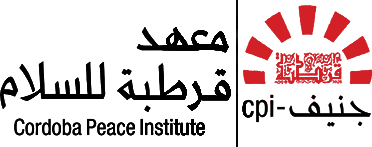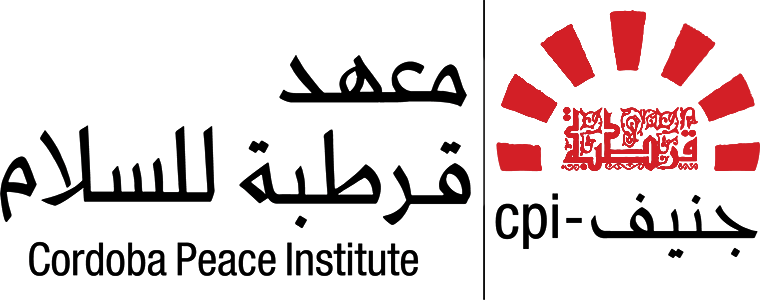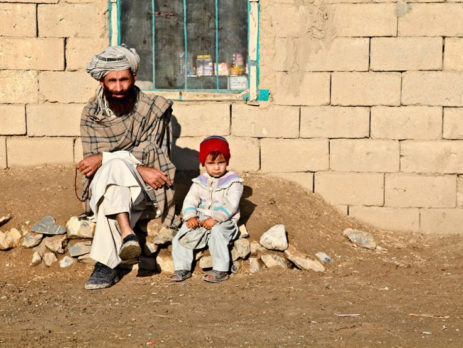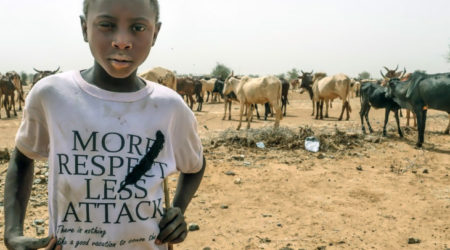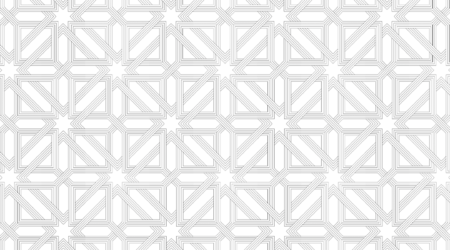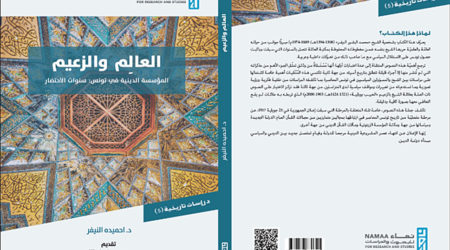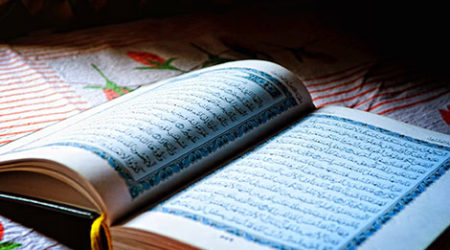The Taliban’s ideological evolution
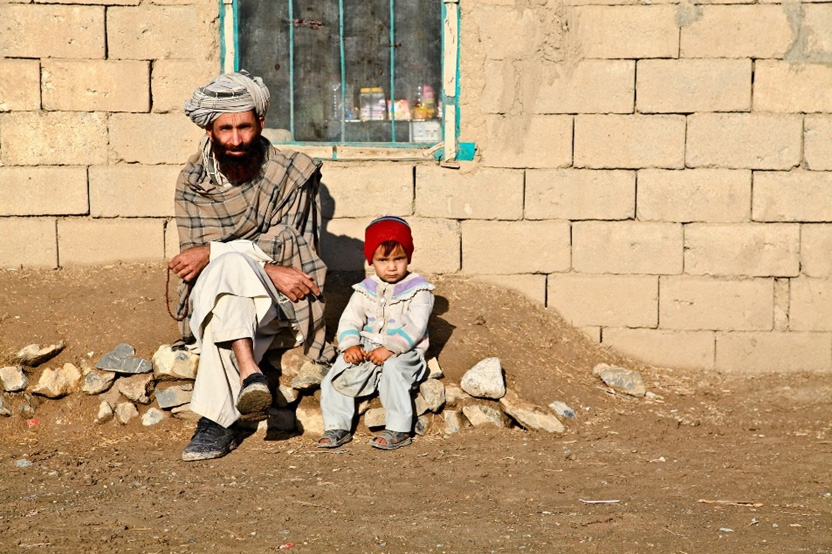
The Taliban’s swift control of Afghanistan sent shockwaves worldwide. Numerous journalists warned from the beginning that the Taliban had not changed at all (1). Many feared the return of a similar style of government to 20 years ago…
By Ozair Khan
1. Introduction
The Taliban’s swift control of Afghanistan sent shockwaves worldwide. Numerous journalists warned from the beginning that the Taliban had not changed at all (1). Many feared the return of a similar style of government to 20 years ago.
In this article, we will see the evolution of the positions and policies of the Taliban on vital governance issues. We will primarily look at these elements through the lens of their religious ideology because this is what largely dictates the Taliban’s decisions. We must realize that the Afghan nation is the only Sunni state (although the government has not been recognized yet) run exclusively by religious leaders. Therefore, by analyzing the evolution of the Taliban’s opinions on some controversial matters, we also explore the eventual development of their religious ideology.
It is therefore interesting to explore the religious ideology of the Taliban and how they came to adopt it.
2. The Talibans’ Deobandism
Many Taliban leaders studied in Deobandi madrasas and they affiliate themselves with this broader movement. Deobandism is a Sunni Islamic revivalist movement formed during the late 19th century around the Darul Uloom Islamic seminary in the town of Deoband, India, from which the name derives. The goal was to preserve Islamic teachings during a period of colonial rule. Rapidly, the movement expanded, and it can be argued that after al Azhar, Darul Uloom Deoband is the second most authoritative Sunni Islamic institution.
This influential scholarly movement had a political wing, Jamiat Ulema-e-Hind, which called for a unified India alongside the Indian Congress. However, some members disagreed and created another party still based on the Deobandi ideology but that instead called for the creation of Pakistan. After independence, this movement became relatively small. However, with the advent of Zia ul Haqq’s rule and funding from Gulf countries such as Saudi Arabia to support the war against communism, the party regained much more political influence and resources, which enabled the creation of hundreds of madrasas in the northwestern part of Pakistan, alongside the border with Afghanistan. At the same time, many Afghan refugees and mujahideen fighters who crossed the border to Pakistan then studied in these Deobandi madrasas. Founders of the Taliban movement and many of its leaders up until now have spent time at Deobandi institutes, the most famous one being Darul Uloom Haqqania situated close to Peshawar, which has been dubbed “the university of Jihad” by western media.
The Deobandi school of thought teaches strictly the Hanafi Islamic jurisprudence madhab. Indeed, Islamic scriptures can be interpreted in various ways, and within Sunni Islam there are four schools with distinctive methods to decide religious rulings. The Taliban are quite clear about their adherence to Hanafism. Ten years ago, the current amirul al-mumineen Hibatullah Akhundzada clearly stated in an audio recording that if an Islamic emirate appeared, it would be based on Hanafi teaching (2). The Hanafi jurisprudence preached by Deobandism is the most widespread in the Near East and Indian subcontinent. However, Hanafism is a spectrum that contains a range of opinions on specific issues and the Taliban regime’s interpretations and practices are not shared by many other Hanafis, which shows two things. Firstly, the Hanafism of the Turkish state is not the same as the Hanafism of the Deobandis. This indicates that the particular understanding of the Taliban on some issues is influenced by the cultural context. Afghanistan is mostly populated by the Pashtun ethnic group, who have always ruled Afghanistan since it took the form of a nation-state in 1747. The Pashtuns have a specific traditional lifestyle: a code of honor by which they live called Pashtunwali, which dates back to ancient pre-Islamic times. So naturally, the Hanafism of the Taliban has been influenced by the Pashtunwali.
A second element, according to Olivier Roy, is that the Taliban are not Islamists but neo-Islamists. The difference between the fundamentalists and neo-fundamentalists is that the former have a systematic ideology and a political agenda. In contrast, the neo fundamentalists are mainly concerned with implementing the sharia in matters of ritual, dress, and behavior. This distinction is crucial to understanding the emphasis of the Taliban on issues related to dress codes.
We will now focus on three sensitive aspects for which the Taliban have been criticized, and we will see if there has been any ideological evolution in matters of women’s employment and girls’ education, implementation of Sharia Islamic Law and Sharia courts, individual freedoms in the public sphere, and treatment of minorities such as the Shia.
3. Women’s employment and girls’ education
The issue of women’s employment and girls’ schooling is the most significant area of controversy surrounding the Taliban, especially with their recent U-turn on girls’ high school education on March 23rd, 2022 (3). This opened past wounds from 20 years ago when women’s education was banned. The Taliban are highly traditional regarding the role of women, insisting that they should take care of the household and avoid freely mixing with men to the extent possible. Among the most traditional understandings of Pashtunwali, merely looking at the face of a woman one cannot marry is an insult to her honor. So, to avoid any promiscuity, women should avoid being outside as much as possible, and this restricts their opportunities for going to school or work. This frame of thinking is then supported by some positions in the Hanafi doctrine, which suit the traditional views found in the Pashtunwali. The importance of considering the context is shown when this is contrasted with views of Deobandis in Pakistan, who also follow the Hanafi doctrine and are the teachers of many Taliban, and strongly disagree with their students on these issues and even criticize them (4). Deobandi Pakistanis do not see a problem with women’s education nor with women’s employment as long as it is in a context where basic religious premises are not broken.
Since their return to power in 2021, the Taliban have again put many restrictions on women’s roles outside the home. Some of these restrictions come from the same cultural and religious fear that women outside the house might lead to free mixing, and they might forget that their primary mission, according to this view, is to take care of their family in the household. But generally, the Taliban nowadays consider that women can study and work as long as certain conditions are fulfilled, such as non-mixed schools (5). On several occasions, Taliban officials have mentioned the need for educating women. Even though they have backtracked concerning high school openings, they have not said that girls’ education is prohibited. They have, to use their words, “merely” postponed the schools’ opening. This gives a minimum of hope for keen observers of Taliban politics. Besides, it is worth noting that this decision is not necessarily ideologically driven. Some political analysts think the Taliban have used the girls’ education issue as a way to re-shift the West’s attention from Ukraine to Afghanistan (6). But even if it was ideologically driven by the most traditional wing of the Taliban, there have been many dissenting voices inside the movement and also from traditional scholars and other actors around Afghanistan, such as a famous general named Mobeen or other active members of the government on Twitter. They have been vocal against this decision (7). This clearly indicates a distancing from the positions from 20 years ago, which is reinforced by the fact that several women’s universities are still open (8). There have been recently several references from senior Taliban members, such as Annas Haqqani, stating that the issues regarding girls’ schools will be solved soon (9).
As for women’s employment, the situation in this second Taliban rule seemed slightly different from 20 years ago until, unfortunately, the 7th of May 2022, as we will see below.
Theoretically, from Afghanistan’s control in August 2021 to May 2022, women could hold government jobs as long as they were entirely covered. Apart from government jobs, women could work and run shops as long as a minimum dress code was respected: loose clothes and a chador, meaning a scarf covering some of the hair (10). Interestingly enough, women were not required (but were strongly recommended) to wear the burqa (11). Twenty years ago, it was unthinkable for women to be outside without the burqa. But the Taliban still encouraged women to wear the burqa through various posters found on the streets. Surprisingly, they still confused the hijab with the burqa because the term hijab is mentioned accompanied by a picture of the burqa. But in classical Hanafi thought, the woman is not required to cover her face. Another interesting aspect is that women theoretically had the right to go outside the house without needing a male chaperone, contrary to the Taliban’s policy 20 years ago, which was more in line with classical Hanafi jurisprudence. Although to be coherent with Hanafi thought women were not allowed the right to board an aeroplane alone (12) which comes from the prohibition for a woman to travel alone. In Hanafi thought, a journey is considered travel when it is over 72 kilometers.
Since May 7th, 2022, the liberties women could enjoy compared to 20 years ago are now mainly abolished. Women are now required to wear the burqa again and cannot go out without a male chaperone. This is a perfect example of the Taliban mixing Pashtun culture with traditional Hanafi Deobandi fiqh. The BBC reporter for Afghanistan and Pakistan, Secunder Kermani, interviewed one of the Taliban officials on this issue and asked him frankly about the Taliban’s understanding of the hijab. The Taliban representative answered by explaining that the hijab should also cover the face (13). This contradicts the Hanafi school of jurisprudence the Taliban affiliate themselves to.
Many of these controversial decisions have come from the Ministry for the Propagation of Virtue and the Prevention of Vice.
4. Implementation of Islamic law
4.1. Ministry for the Propagation of Virtue and the Prevention of Vice
The role of this ministry is to ensure Islamic customs are respected in the public sphere, and it was the most feared government body 20 years ago. Every religious opinion the Taliban held had to be applied by all in the public sphere. Men were forced to grow their beards, TVs were banned, etc. With their sudden recent return to power, they have reinstituted this ministry, but it seems to have adopted a different approach this time round. According to official statements, the ministry’s goal is to advise rather than punish directly. In some conduct guidance documents given to its employees, they “must be patient and behave with people with ease.” (14)
Unlike twenty years ago, the Taliban have not imposed the full hijab or burqa in the public space. In most regions, men are not required to wear beards, except for civil servants.
When speaking about this ministry, we see the benefit of Olivier Roy’s distinction between fundamentalists and neo fundamentalists. The Taliban being from the latter, their governance policies are not quite coherent with their ideology. Their method for the Sharia to be applied in the public space through this Virtue Ministry shows their haphazard organization. As mentioned before, the officers of this ministry that patrol the streets must only advise. However, there have been reports that some branches of this ministry have tried to impose their views on the population in some districts by prohibiting the shaving of beards (15) or registering attendance at mosque prayers. Another interesting example is when the head of the Ministry for the Promotion of Virtue and Prevention of Vice in the northern province of Balkh ordered the closing of women’s bathhouses. However, a few days later, after many complaints from scholars, a spokesman for the ministry mentioned that no official order regarding this issue had come from Kabul (16). Therefore, the Taliban’s enforcement of their understanding of the Sharia is quite confusing. In some cases, they seem more open-minded, such as allowing TV’s, the use of social media or not punishing men for shaving their beards, but in others, instead of advising, they regulate, as with the case of women having to cover their face.
Even among Taliban supporters, there is a call for dismantling this ministry because it infringes on peoples’ privacy and encourages the Taliban to spy on people. This is especially susceptible to happen since many of those working for this government body have not received proper training.
Although its alleged goal is to mainly advise, if some members of this ministry catch someone who has been notified not to do something socially objectionable, he should be taken the court. Since May 7th, 2022, women not covering their faces fall under this category. As a matter of fact, when a woman does not comply, some members of the ministry will come and visit her guardian at home and advise him. If the woman still does not comply, the male guardian will be summoned to the ministry for another admonishment. If the woman continues, her guardian is taken to court and jailed for three days (17). Since this law is very recent, there is still some confusion among the Taliban ranks on how this decree will be applied in real life.
On the other hand, a particular set of crimes directly leads the perpetrator to court to receive a judgment. The majority of these “graver” crimes have fixed penalties attached to them in the Islamic scriptures, called hudud, such as the hand of a thief being cut off.
4.2. Sharia courts and Hudud
The judicial courts’ judgments on these hudud are based on a Hanafi understanding of the Sharia that many of its judges learned in Deobandi institutes. There was public outrage twenty years ago with notorious cases of public stoning and other harsh punishments. However, now it seems that even though hudud sanctions will still be applied, it will be only after a more thorough gathering of evidence. According to Sangar Pakhayr from the Afghan Eye website, the Taliban have been less hasty in judgments related to hudud since Abdul Hakeem Haqqani, one of the most respected scholars of the Taliban and current Chief Minister of Justice, published a book called Rawdat al-Qada’ that clarifies the correct way to pass judgments. Moreover, a Taliban supporter and journalist quite active on Twitter named Qari Abdul Satar al Saeed has mentioned on Twitter that there have not been any hudud cases yet, even though many people have committed crimes that might be punished with hudud sanctions, because it takes time to gather all the necessary proof to pass these judgments (18). Another official has stated that if there are cases of hudud they might not be punished in public (19). These comments seem to indicate a departure from an extremely harsh approach to enforcing Islamic jurisprudence as influenced by the Pashtunwali traditional custom to a more moderate approach to Hanafi fiqh jurisprudence that is more in line with the teachings of Deoband.
The final area of controversy surrounding the Taliban we will mention is their tumultuous relationship with the Shia minority.
5. Relationship with the Shia
The Shia in Afghanistan, mainly represented by the Hazara ethnic minority group, faced much abuse at the hands of the Taliban twenty years ago. Today, there have been several reports of Hazara families having suffered some injustices, but at a state level, there have been some messages displaying inclusivity. “We are providing a safe and secure environment for everyone, especially the Hazaras” (20), said Taliban government spokesman Zabihullah Mujahid. These statements are based on the Taliban’s pragmatism. They nevertheless consider Shia beliefs to be heresy. However, they have tolerated some Shia practices. There are some Twitter accounts supposedly run by supporters of ISIS who have posted many videos of the Taliban protecting Shia shrines. According to these accounts, the Taliban have gone extremely soft (21).
Despite these reassuring signs, the Shia population fears the worst. A Pakistan-based Shia cleric has said that even if the Taliban government has good intentions regarding the Shia, problems might arise because of their untrained soldiers who will get carried away (22). This brings us again to the fact that the Taliban is a neo fundamentalist movement with a government that is still highly fragile.
6. Conclusion
In conclusion, the fear among journalists of Afghanistan becoming as it was twenty years ago might be exaggerated because they tend to forget how bad the situation actually was during the first Taliban regime. Many decisions taken by the Taliban are indeed reminiscent of their previous rule, especially regarding women. However, as we have seen, they have become less decisive at a theoretical and ideological level on some issues. Their ideology is now much more similar to the Deobandis they have studied with. Also, the decisions affecting women may not be driven ideologically but used as a bargaining position as a reaction to the freezing of some of their funds. Moreover, the Taliban’s more radical choices have often been met with resistance from within the Taliban academic establishment. Nevertheless, with their haphazard administration and the radical strand within its ranks, there might be a gap between what the top of the government passes as policy and what might be done at a local level by the rank and file of the militant movement. This gap risks undermining the modest ideological evolutions of the past twenty years.
Ozair Khan
References
(1) The Taliban Is Just as Bad as It Always Was. Yasmeen Serhan. The Atlantic, October 16, 2021. https://www.theatlantic.com/international/archive/2021/10/taliban-hasnt-changed-afghanistan/620371/
(2) Islam Paal. Mar 20, 2022. https://twitter.com/IslamPaal/status/1505514088205815809
(3) The Taliban closes Afghan girls’ schools hours after reopening. Aljazeera, 23 Mar 2022. https://www.aljazeera.com/news/2022/3/23/taliban-orders-girls-schools-shut-hours-after-reopening
(4) Qaseem Nangyal. Apr 21, 2022. https://twitter.com/QaseemNangyal/status/1517100359973576704
(5) Afghanistan: Taliban announce new rules for female students. BBC, 12 September 2021. https://www.bbc.com/news/world-asia-58537081
(6) The Consequences of Closing Girls’ Schools. Abdulhakim Allahdad. Afghan Eye, 30 March 2022. https://afghaneye.org/2022/03/30/the-consequences-of-closing-girls-schools/
(7) Natsec Jeff. Mar 28, 2022. https://twitter.com/Natsecjeff/status/1508502346917158913
(8) Taliban reopen universities for Afghan women in 6 provinces. Tameem Akhgar. AP News, February 2, 2022. https://apnews.com/article/afghanistan-kabul-taliban-b09a81e36032f8ec2551c94699c1cce5
(9) Tolo News. May 4, 2022. https://twitter.com/TOLOnews/status/1521772482281320448
(10) Of course, women can work in Afghanistan! 5Pillars. https://www.youtube.com/watch?v=3dDbpOORExQ&ab_channel=5Pillars
(11) In Afghanistan, Taliban diktat sparks debate about women’s attire. Arwa Ibrahim and Mohsin Khan Momand. Aljazeera, 26 Jan 20222. https://www.aljazeera.com/news/2022/1/26/holdafghan-women-denounce-talibans-burqa-campaign
(12) Afghanistan’s Taliban ban women from flying without male chaperone. Swiss Info, March 27, 2022. https://www.swissinfo.ch/eng/afghanistan-s-taliban-ban-women-from-flying-without-male-chaperone—sources/47467410
(13) Secunder Kermani. May 8, 2022. https://twitter.com/SecKermani/status/1523243735307677696
(14) Afghanistan: what is the ‘ministry for the Propagation of Virtue and the Prevention of Vice’. Zyri, December 21, 2021. https://www.zyri.net/2021/12/21/afghanistan-what-is-the-Ministry-for-the-propagation-of-virtue-and-the-prevention-of-vice/
(15) The Taliban Order Barbers Not to Shave Beards in Afghan Province Of Helmand. NPR, September 27, 2021. https://www.npr.org/2021/09/27/1041025238/the-taliban-order-barbers-not-to-shave-beards-in-afghan-province-of-helmand
(16) Is Governance the Taliban’s Achilles Heel? United States Institute of Peace. https://www.youtube.com/watch?v=JUp7c4MBfRE&ab_channel=UnitedStatesInstituteofPeace
(17) Secunder Kermani. May 7, 2022. https://twitter.com/SecKermani/status/1522832899254464513
(18) Qari Saeed. Feb 23, 2022. https://twitter.com/qarisa3eed/status/1496305045041782784
(19) Taliban Official Says Strict Punishment and Executions Will Return. NPR, September 24, 2021. https://www.npr.org/2021/09/24/1040339286/taliban-official-says-strict-punishment-and-executions-will-return?t=1649759882125
(20) Despite Mistrust, Afghan Shiites Seek Taliban Protection. VOA News, November 16, 2021. https://www.voanews.com/a/despite-mistrust-afghan-shiites-seek-taliban-protection-/6315097.html
(21) Taliban Exposed. Mar 29, 2022. https://twitter.com/talibs_exposed/status/1508921252022525960
(22) Afghanistan’s Shia are fearful in face of Taliban takeover. Amy Kazmin, Najmeh Bozorgmehr and Farhan Bokhari. Financial Times, August 26, 2021. https://www.ft.com/content/dedd8b47-e7fa-4afe-aa0f-d1833dc27418


